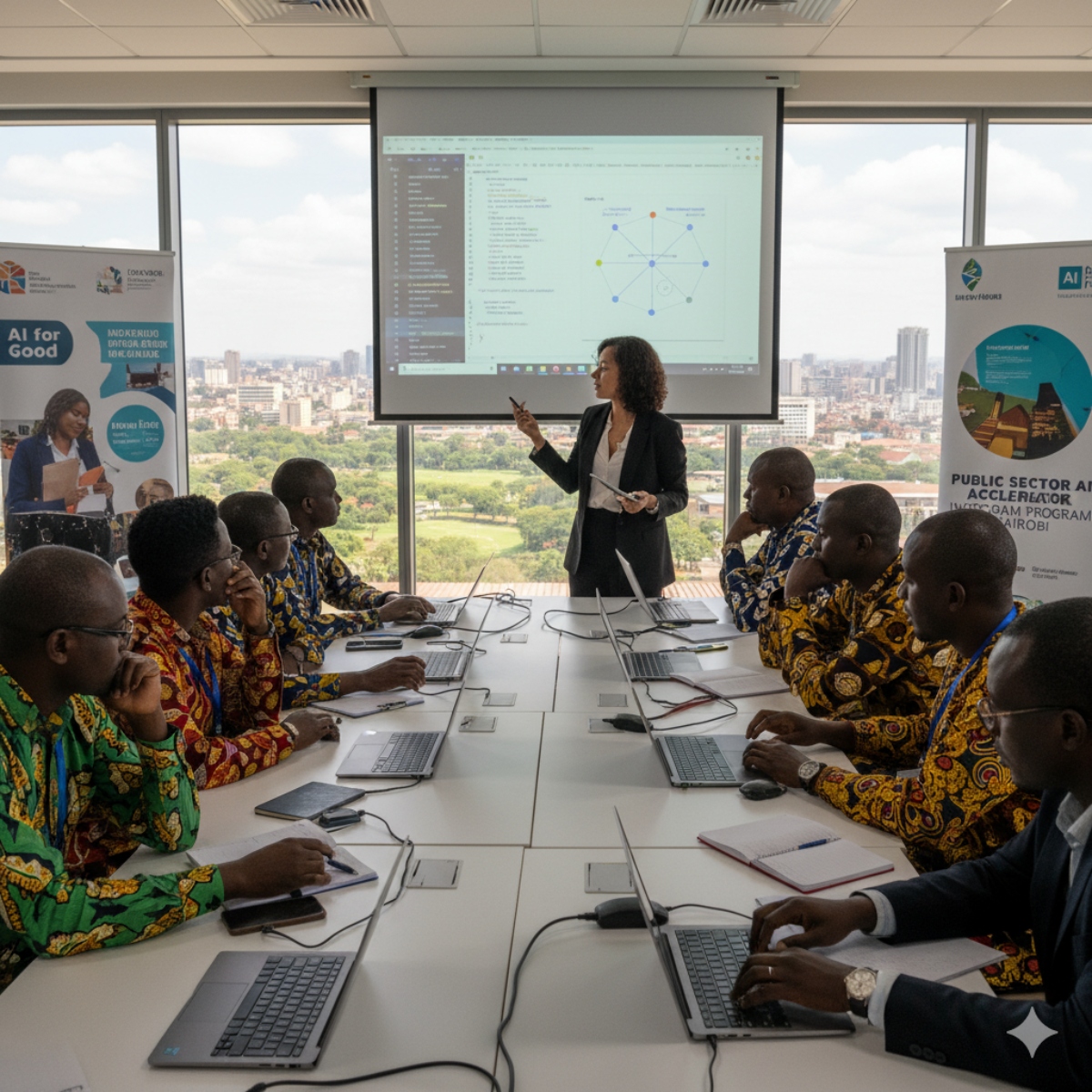Nairobi, Kenya — In a landmark partnership aimed at accelerating Africa’s digital transformation, Kenyan technology firm Qhala has joined forces with Apolitical, a global learning platform for government, to launch Q-Academy—a groundbreaking initiative designed to equip African public servants with artificial intelligence skills tailored to the continent’s unique governance challenges.
The academy was officially unveiled in Nairobi on September 29, 2025, marking a significant milestone in Africa’s journey toward AI-driven governance and service delivery.
Bridging Innovation and Implementation
Under a newly signed Memorandum of Understanding, the partnership will provide 500 African policymakers with access to Apolitical’s Government AI Campus, a trusted training hub currently serving more than 270,000 public officers worldwide. Qhala will complement this offering with AI literacy masterclasses specifically designed for African contexts.
“By contextualizing global knowledge to local realities, we are bridging the gap between innovation and implementation in government,” said Dr. Shikoh Gitau, CEO of Qhala. “This partnership is about equipping African policymakers with the skills to apply AI in governance and service delivery.”
The first cohort will include policymakers from six African nations: Kenya, Cameroon, Rwanda, South Africa, Nigeria, and Senegal. These countries represent a cross-section of Africa’s emerging AI landscape, each at different stages of developing national AI strategies.
Proven Track Record and Strategic Timing
The initiative builds on successful pilot programs already conducted in Kenya, Cameroon, and during the African Health Agenda International Conference in Kigali. These early sessions demonstrated the demand for contextually relevant AI training that addresses Africa’s specific governance challenges.
Robyn Scott, co-founder and CEO of Apolitical, emphasized the strategic importance of the partnership: “We are proud to partner with Qhala to expand access to the Government AI Campus in Africa. This training will help public servants deliver better outcomes for citizens.”
The launch comes at a pivotal moment for the continent. The African Union is currently developing a continental AI strategy, the Africa AI Declaration has established the Africa AI Council, and approximately 20 African countries—including Kenya, Rwanda, and Nigeria—have already rolled out national AI strategies.
Beyond Training: Building Responsible AI Capacity
Rachel Osendo, Qhala’s Lead Policy Consultant, emphasized that Q-Academy represents more than just a training program. “This will be a dedicated space for African public servants to build capacity in responsible and impactful AI use,” she explained. “The platform will provide curated courses, tools, and real-world examples to support digital transformation in public institutions.”
The academy is designed to promote equity, gender inclusion, and context-specific solutions—addressing longstanding concerns about AI development that fails to account for African realities and priorities.
A Self-Paced Learning Hub
Q-Academy will function as a self-paced learning hub accessible to policymakers, technologists, analysts, and executives across the continent. The platform will combine curated resources from Apolitical’s AI Campus with locally tailored learning experiences developed by Qhala.
This hybrid approach aims to ensure that participants not only understand global AI best practices but can also adapt them to address local challenges—from healthcare delivery in rural areas to financial inclusion and agricultural productivity.
Future-Proofing African Governance
According to Osendo, the academy’s mission extends to “future-proofing governance with responsible AI.” This forward-looking approach recognizes that as AI technologies continue to evolve rapidly, African institutions need continuous learning pathways to remain competitive and effective.
The initiative also addresses a critical skills gap that has hindered AI adoption across African governments. While many countries have developed AI strategies on paper, implementation has been slowed by a shortage of public servants with practical AI knowledge.
Regional Expansion Expected
While the initial focus is on the six participating countries, both organizations have indicated plans for regional expansion. The success of the first 500-participant cohort will likely determine the pace and scope of future rollouts across the continent.
The partnership between Qhala and Apolitical represents a growing trend of South-South and North-South collaboration in technology capacity building—one that prioritizes African agency in shaping how AI is understood, governed, and deployed on the continent.
As African nations race to position themselves in the global AI landscape, initiatives like Q-Academy may prove crucial in ensuring that the continent doesn’t merely adopt AI technologies but shapes them to serve African priorities and values.
For more information about Q-Academy and enrollment details, interested public servants can contact Qhala or visit Apolitical’s Government AI Campus platform.





Thanks for sharing. I read many of your blog posts, cool, your blog is very good. https://www.binance.com/sl/register?ref=I3OM7SCZ